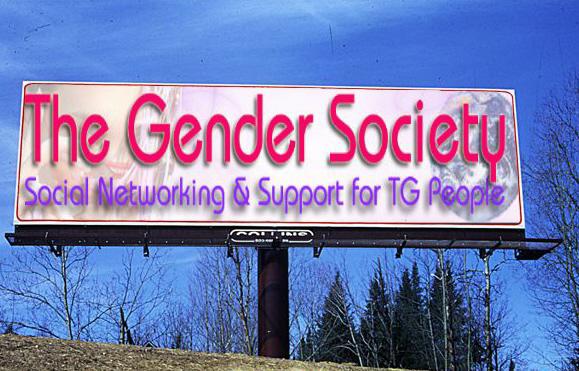Notifications
This is a truly tangled web, which requires a complex walk through of
medical, legal and jurisprudential issues. The conclusions are perhaps quite
unexpected, though, and perhaps not at all unwelcome.
The UK Government:
The UK government has stated what transsexualism is not:
It is not a mental illness. It is a condition considered in itself to be free of other
pathology (though transsexual people can suffer depression or illnesses like
anyone else).
They have stated what the condition is:
What is gender dysphoria?
Gender dysphoria or transsexualism is a drive to live in the opposite gender to
that in which a person has been registered at birth. It is a widely recognised
medical condition. The Chief Medical Officer has confirmed that gender
dysphoria is a medical condition that may need treatment and that treatment
may be carried out by the National Health Service (NHS) as well as privately.
http://webarchive.nationalarchives.gov.uk/+/http://www.dca.gov.uk/constitution/transsex/policy.htm
Mental Disorder, Mental Illness?
Section 1 of the Mental Health Act 1983 defined "mental disorder" as meaning
"mental illness, arrested or incomplete development of mind, psychopathic
disorder or any other disorder or disability of mind”.
Clearly, mental illness has been ruled out. Clearly also, a psychopathic
disorder has been ruled out, as these are all classed as mental illnesses.
So as far as the medical-legal situation in the UK is concerned, a person who
fits the diagnostic criteria F64.0 for transsexualism is suffering from a mental
disorder, and not a mental illness.
Interestingly, the treatment regime is also well defined. In the do***ent
“Guidelines For Health Organisations Commissioning Treatment Services For
Individuals Experiencing Gender Dysphoria And Transsexualism” it is stated:
“All commissioning bodies and health care practitioners, whether in private practice or
the NHS, should also be aware that unnecessary, non-clinical delay in administering
hormones or moving to the surgical stage of treatment could result in legal challenges.”
So there we have it:
As it currently stands in the UK, transsexualism is a mental
disorder, a recognised medical condition, and with a specified
physical treatment regime, including hormones and surgery.
It would not be medically appropriate - nor indeed, even legal – to refer to
such a fully transitioned person as anything else but the man or woman they
actually are.
„True‟ transsexualism is not related to age. It is not a „crazy man who believes
he should be a woman‟. Succinctly, it is a woman with a physical problem, not
a man with a mental one.

There are a small number of people in the United Kingdom - perhaps just a few thousand - who are not comfortable with their gender identity. Some may feel they have been born into the wrong body, whilst others come to feel that their gender identity has become incompatible with the gender registered at birth. Estimates vary, but perhaps one man in every 12,000 feels he is a woman. The proportion of women who feel they are men is smaller, but they too are convinced that their birth gender does not match their gender identity. They are transsexual people.
2. The deep conviction that gender identity (believing oneself to be a man or a woman) does not match one's appearance and/or anatomy is called gender dysphoria or gender identity disorder. The incongruity between identity and body can be so strong that individuals are driven to presenting themselves in the opposite gender. Some people experience this incompatibility of identity and body in childhood; others later in life. Once experienced, the feelings are unlikely to disappear but it may take many years to cross over - or "transition" - completely from the original into the acquired gender. Some individual profiles of transsexual people may be found at the Press for Change website.
Terminology
Transsexual people feel the deep conviction to present themselves in the appearance of the opposite sex.
They may change their name and identity to live in the acquired gender. Some take hormones and cosmetic treatments to alter their appearance and physical characteristics. Some undergo surgery to change their bodies to conform more to their acquired gender. These people are all transsexual. (Sometimes they refer to themselves as transgender - a broader term that includes people temporarily changing their gender and appearance as well as transsexual people.)
Government policy is to use the terms transsexual people or transsexual person, transsexualism and gender reassignment - and not the respective expressions "transsexuals", "transsexuality" and "sex change", which some transsexual people find unacceptable.
3. Transsexualism or 'gender dysphoria' is a widely recognised medical condition that the Government's Chief Medical Officer has confirmed may properly be treated under the National Health Service as well as privately. There are five specialist centres catering for gender identity disorders in England, at Charing Cross in London and in Leeds, Newcastle, Nottingham and Sheffield. GPs and psychiatrists tend to refer patients to these clinics for expert diagnosis and, as appropriate, courses of counselling, hormone treatment and possibly surgery. The recognised stages of gender re-assignment are:
Social changes - assume new name and gender, inform family and friends, live and work in the chosen gender role (the so-called "real-life experience");
Hormonal and other treatments - following psychiatric assessment, provision of cross-gender hormone prescriptions (where medically suitable) and possibly cosmetic means to aid appearance in the acquired gender;
Surgical gender re-assignment - primary surgery may be performed to remove the sexual and reproductive characteristics of the original gender, and/or to create characteristics appropriate to the new gender. Surgery is not usually performed until the transsexual person has spent at least two years living successfully in the "real-life experience".
4. At all these stages, psychological and psychiatric services are usually deployed in support. Although most transsexual people take hormones to modify their sexual characteristics, not all are able to have surgery, for medical and other reasons. Gender reassignment surgery is a major procedure with limited numbers of consultants trained to undertake some aspects of the surgery. The decision on whether the procedure is funded by the NHS is taken by Primary Care Trusts. Many transsexual people are able to live successfully in the new gender without undergoing invasive surgery.
5. Once they are living permanently in their acquired gender, most transsexual people want their official do***entation to reflect their new gender identity. They may obtain some official do***ents (including passports, National Insurance cards and driving licences) in their new name and gender, and the Department for Work and Pensions will make special arrangements for handling their records sensitively. Many private companies too have special arrangements for transsexual people. They are not currently entitled, however, to have their birth certificates revised, nor to enjoy any rights legally confined to persons of the gender to which they feel they belong. They cannot marry in their acquired gender, nor draw the State pension at the age appropriate to that gender.
6. Many transsexual people want to keep their past life in their birth gender private, and object to having to produce a birth certificate in their former name and gender. They want to be recognised legally in their new gender - for example, for State pension purposes; to enjoy, so far as possible, privacy and protection from identification in their original gender; and some wish to marry in the acquired gender. It is these rights, currently unavailable to transsexual people in the United Kingdom, which the Government's proposals will address.
What transsexualism is not
Transsexualism is not transvestism or cross-dressing for sexual thrill, psychological comfort or compulsion.
It is not an orientation towards people of the same sex.
It is not related to paedophilia.
It has nothing to do with drag queens.
Transsexual people do not choose their gender identity. Transsexualism is an overpowering sense of different gender identity rather than any sexual orientation: transsexual people may be heterosexual, gay/lesbian or celibate.
It is not a mental illness. It is a condition considered in itself to be free of other pathology (though transsexual people can suffer depression or illnesses like anyone else).
Obviouslt since the implementation of the GRA, paragraph 5 has changed, regarding birth certificates and marriage.
http://www.legislation.gov.uk/uksi/1999/1102/contents/made
Excellent thread Crissie. Valuable information for everyone. Thank you x
Standards of Care
for the Health of Transsexual,
Transgender, and Gender
Nonconforming People
http://www.wpath.org/documents/Standards%20of%20Care%20V7%20-%202011%20WPATH.pdf
http://www.gires.org.uk/medpros.php
